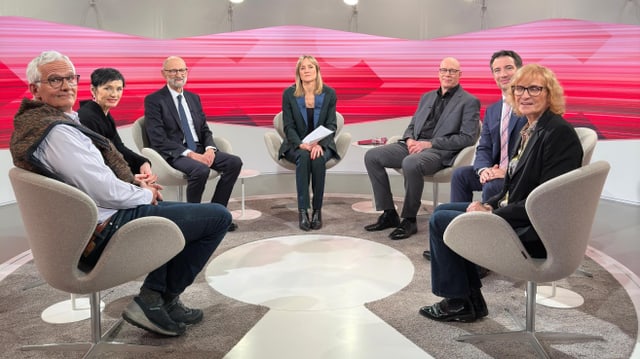Contents
The attack by a 15-year-old on an Orthodox Jew is shocking. What can be done about anti-Semitism among young people?
“Certain Jewish people hide their kippah under their hats, others take the Star of David off their necklace and others no longer send their children to school.” This is how the President of the Swiss Association of Jewish Communities (SIG), Ralph Lewin, describes the great uncertainty in the Jewish community since the knife attack in Zurich on an Orthodox Jew. What Lewin is particularly concerned about is: “The young person was only 15 years old, he went to school here, why didn’t anyone notice?”
Radicalization in schools too often goes unnoticed
A question that also concerns Ester Meier, head of the department for radicalization and violence prevention in the city of Bern. She works with radicalized young people and criticizes the fact that the perpetrator in Zurich did not recognize the warning signs: “Withdrawing sharply can be a typical pattern for radicalization.”
If teachers or those around them notice any abnormalities, they must be reported to the specialist departments immediately. “Even if it’s just something small that unsettles you about a young person’s behavior.” The earlier one recognizes tendencies towards radicalization, the greater the success of de-radicalization. “But what we often see is that it is noticed but not reported,” says Meier.
Extremism specialist offices is available throughout Switzerland. In the city of Bern, it works with mentors, social workers and the police. However, sensitization and education must take place beforehand at school.
What is the mission of the school?
One person who does such educational work is Erik Petry, professor of Jewish history. He travels to Swiss schools with the SIG’s Likrat project. The historian talks to young people about the persecution and prejudices against Jews and creates encounters with Jewish students. “I was also told that Jewish children were spit on and called ‘shitty Jewish children’.”
In order to counteract this, history must take up a greater place in schools again. The question is what image of Judaism the children grow up with: “Not all teachers have to be specialists. But they have to know who they can get help from,” says Petry.
A finding shared by the President of the Swiss School Principals Association, Thomas Minder. Even if schools already teach tolerance, “specific expertise on the subject of anti-Semitism is not one of the core competencies of many teachers.”
As a society against anti-Semitism
Everyone has a duty to deal with anti-Semitism, but Ralph Lewin is clear: “We have high expectations of the Conference of Educational Directors in dealing with anti-Semitism. It is important that people become familiar with what Judaism is and what Jewish people are like. Are they from Mars or are they people like you and me?” It’s about seeing people and not primarily their religion.
The National Council has just approved a national action plan against anti-Semitism and racism. Politics can create guard rails. However, the fight against anti-Semitism remains a task for society as a whole, the group in the “Club” agrees.
